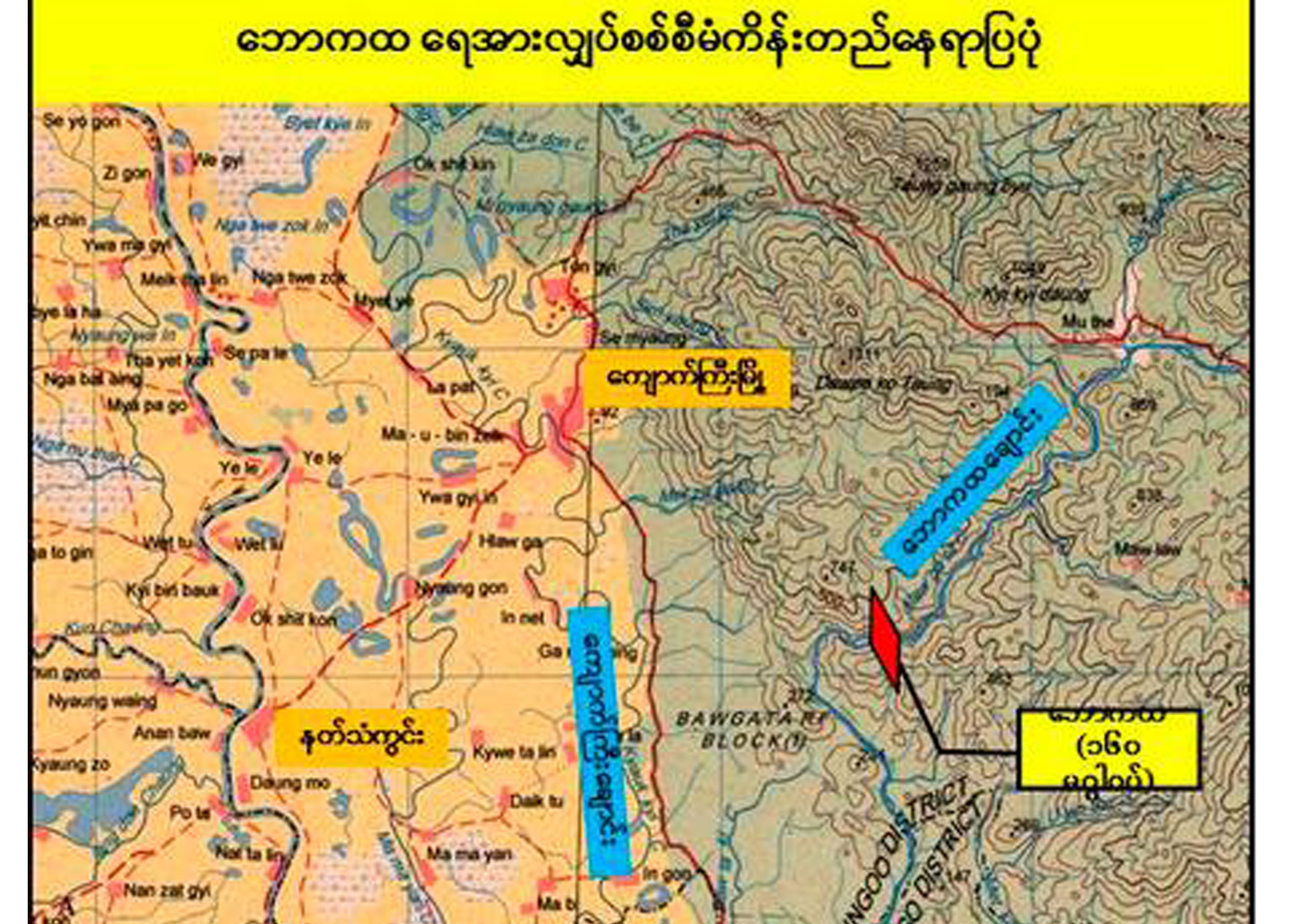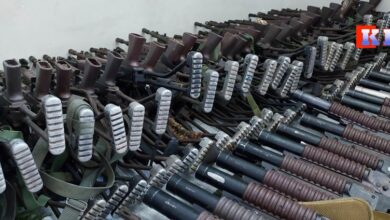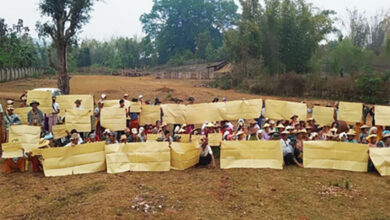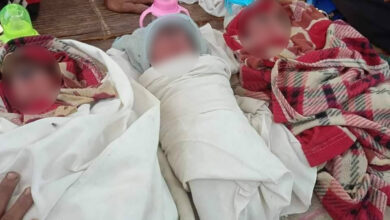KNU Critical Of “Untrue” Media Reports On Dam, But Locals Not Convinced…

The Karen National Union is outraged that media reports said it had signed a Memorandum of Understanding with the with the government to construct a hydro-power dam as untrue.
The KNU issued a denial after Karen communities inside Burma and overseas, incensed by the reports, lashed out at the ethnic political organization for giving the go-ahead for the government to construct a hydro-power dam.
The backlash came after the KNU were reported to have signed MoU with the government to build the Baw Ka Hta hydro-power dam project, located in the KNU’s Nyaunglebin (Kler Lwee Htu) district in Easter Pegu Division.
The media reported that the MoU was signed between Padoh Saw Ta Doh Moo, the head of the KNU’s affiliated company, Thoolei Co. Ltd and the director general of the government’s electric power department, U Aye San.
The strong reaction from Karen communities resulted in the KNU issuing a public statement on February 26, 2016, to explain its involvement in the Baw Ka Hta project.
Padoh Kwe Htoo Win, the KNU General Secretary said that they had issued the statement to clarify its position.
Speaking to Karen News, Padoh Kwe Htoo Win said.
“The signing [MoU] was the mutual agreement for a preliminary report on a feasibility study, not for the implementation of the project. We’d like to explain that news report in the media are wrong – it is not the real situation.”
The KNU statement set out to reassure the Karen community that the process would “not ignore the opinions of the local communities and [KNU] would not engage in activities that might lead to human rights violations. The [aim] was to conduct a feasibility study of international standard, that would guarantee local [communities] participation, decision making and benefit sharing, the protection of human rights and impact on the environment.”
Representatives from Thoolei Co.Ltd. led by Padoh Ta Doh Moo held a meeting with local community groups and activists in early February to explain about the project, but community groups said they signed the MoU without public consent. As local communities were not satisfied with the move, it forced the KNU and the community groups into further discussions on February 25 in Rangoon.
Naw Tabithan, a member of a local community group, East Life said, “There was an agreement that they [KNU] would take into account the opinions of the local people if it [dam] should be built. We had asked them to let us join in the preliminary feasibility study. We, the locals also wanted to study our region with the help from experts, so we will know the difference between the research their scholars did and ours. Frankly, we totally don’t believe them.”
The KNU statement also confirmed that the MoU is not “…for the realization of the Baw Ka Hta hydro-power project as reported by some sources, but it was only for the ‘project feasibility study report’ that will take two years to complete.”
In an exclusive interview with Kwekalu, a Karen language news agency, the MoU signatory Padoh Ta Doh Moo, the head of the KNU’s Thoolei Company and the head of the KNU’s economic committee explained the process of the feasibility study.
“We divided it into two parts over the 24-months feasibility study period. The first part, we called the pre-feasibility study will be for eight months. At this stage, we will make a decision if we can will continue or not. Even if the study finds that we are good environmentally and financially – if the local community don’t agree to continue – we can stop right there. What we want is to have a good example of international best practice, we have never had this in this country.”
According to Padoh Kwe Htoo Win, after the study, the findings will be submitted to the government, and only, if the set standards are met, will the implementation work continue with the permission of the government.
Padoh Kwe Htoo Win said that the project intended in the interest of the people and it has a reciprocal effect between peace and project implementation, the KNU won’t do any action that [adversely] affects the people.
KNU sources said that in order to implement the Baw Ka Hta hydro- electric power project by using the system of Build Operation Transfer (BOT), Thoolei Co.Ltd and a Norwegian consultancy group will cooperate in carrying out the study.
The Baw Ka Hta hydro- electric power project, is proposed to be built on the Baw Ka Hta creek 10 miles east of Kyaukgyi, in the KNU’s Nyaunglebin District, Bago Division.
KNU sources said that when it is finished, it could produce 111 megawatts of electricity.
The KNU statement pointed out that Baw Ka Hta hydro- electric power project is a designated project by the Burma government and successive governments have tried to implement it.
The KNU’s statement said that the signing of the dam MoU to get a preliminary report on the feasibility study was carried out by the [KNU’s] central economic committee in accordance with the decision of the KNU central executive committee.




